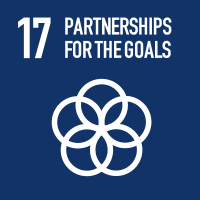Studying at the University of Verona
Here you can find information on the organisational aspects of the Programme, lecture timetables, learning activities and useful contact details for your time at the University, from enrolment to graduation.
Study Plan
This information is intended exclusively for students already enrolled in this course.If you are a new student interested in enrolling, you can find information about the course of study on the course page:
Laurea magistrale in Marketing e comunicazione d'impresa - Enrollment from 2025/2026The Study Plan includes all modules, teaching and learning activities that each student will need to undertake during their time at the University.
Please select your Study Plan based on your enrollment year.
1° Year
| Modules | Credits | TAF | SSD |
|---|
2° Year activated in the A.Y. 2024/2025
| Modules | Credits | TAF | SSD |
|---|
| Modules | Credits | TAF | SSD |
|---|
| Modules | Credits | TAF | SSD |
|---|
| Modules | Credits | TAF | SSD |
|---|
Legend | Type of training activity (TTA)
TAF (Type of Educational Activity) All courses and activities are classified into different types of educational activities, indicated by a letter.
Digital business (2024/2025)
Teaching code
4S010485
Academic staff
Coordinator
Credits
9
Language
Italian
Scientific Disciplinary Sector (SSD)
SECS-P/08 - MANAGEMENT
Period
Primo semestre LM dal Sep 30, 2024 al Dec 23, 2024.
Courses Single
Not Authorized
Learning objectives
The aim is to enable student to have the specific competencies and skills at both strategic and operational level in the field of digital marketing and social media marketing. Finally, the student will be able to understand how the digital environment works and how to plan and manage a brand/company activities across the online and the offline environments. Within the course, a project work will be realized to develop a digital marketing project. Such project work will allow students to implement the tools learnt during the course and to strenghten their relational and communication skills, improving the interaction with other students in order to face and manage together complex case studies.
Prerequisites and basic notions
There are no propaedeuticities, but it is recommended to take this course only after passing the first-year exams. Since this is an advanced course, it is suggested that some gaps related to:
- Knowledge of the fundamentals of Marketing
- Knowledge of economics and business management principles
- Familiarity with basic software
- Basic communication and copywriting skills
Program
The course is structured into two main sections. The first section, called 'digital', aims to introduce the digital environment, with a specific focus on marketing strategies in the digital realm, the implementation of digital strategy, and the measurement of their performance. The second section, dedicated to 'social media', explores using social media platforms to directly interact with customers, foster one-to-one relationships, and present strategies for executing social media marketing campaigns.
The course adopts a predominantly practical approach, aiming to equip students with the necessary skills to use the key digital tools available to marketing and social media managers. During the classes, experts from the digital industry will be invited, and field trips to local companies will be organised to allow students to observe the work of industry professionals directly. By the end of the course, students will be able to design, implement, and evaluate a digital marketing campaign from an omnichannel perspective.
Programme=
- Digital Business: analysis of the online marketplace in the micro and macro environment
- Strategic development in digital business: digital strategy, digital branding, data-driven relationship
- Development of digital customer experience
- Planning and executing a digital marketing campaign
- Evaluation and performance of digital channels
Social Media Marketing
- Environment, consumers, network structure
- Social media strategies and tactical planning for social media marketing
- The four areas of social media: community, publishing, entertainment, commerce
- Creating a social media marketing plan
Bibliography
Didactic methods
The teaching methods include lectures that will be recorded and made available on the Moodle platform. Students can use these recordings to consolidate key concepts, review the explanations provided by the instructor, and receive feedback on the work conducted in class. Additionally, guest speakers from the digital industry will be invited to share their professional experiences and engage in discussions with the students. The Wednesday session will be focused on a practical workshop designed to apply the theoretical concepts covered in the previous day's lecture. Furthermore, three company visits are planned in Verona, Vicenza, and Padua.
Learning assessment procedures
The exam will consist of the completion of a digital business project work, which will account for 50% of the overall grade. The project work must be done in groups and submitted to the instructor at least 10 days before the exam date. It will then be presented during the examination session (15 minutes per presentation). The remaining 50% of the grade will be based on a 15-minute individual oral examination, focusing on the provided materials and the topics discussed in class. Students will be required to demonstrate their ability to integrate the theoretical concepts learned with practical applications in the context of digital business and social media marketing.
Evaluation criteria
The assessment, expressed on a scale of thirty, will be based on two main components. For the project work, the grade will be determined by the ability to effectively implement the proposed digital business strategy and the quality of its presentation. For the oral examination, the evaluation will focus on the students' theoretical knowledge and their critical ability to connect business strategies to the digital environment. For those who participate in the company visits and complete the assignments, a bonus of 1 to 2 points will be awarded.
Criteria for the composition of the final grade
Project work + oral exam (+ any bonus points)
Exam language
Italiano




